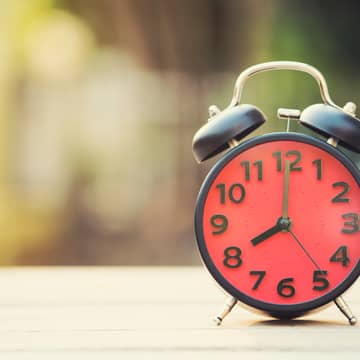When I was first in treatment, I heard the same message repeatedly: “Do not underestimate the critical importance of sleep in your recovery.” As someone who slept less than 4 hours a night during active alcoholism and drug addiction, I couldn’t imagine getting more sleep than that – and I certainly couldn’t imagine getting more than that consistently.
Yet as I progressed in my recovery, and the more time I spent away from drugs and alcohol, I began to realize how much sleep really did impact me. Because I also struggle with anxiety, sleep has always been an area of concern for me, even during my recovery from drugs and alcohol. I’ve specifically noticed how lack of sleep affects my mood, ranging from areas like patience and tolerance to overall intellectual bandwidth and capacity. If I don’t prioritize sleep, I snap at the tiniest things – issues that would never bother me if I felt well rested. While almost everyone has experienced the irritability and lack of focus that follow a poor night’s sleep, the mental effects after several sleepless nights are more serious and acute. After two or three nights of poor sleep, I experienced severe brain fog, with decreasing ability to concentrate and make decisions. There were times when my exhaustion was so intense that I pulled over on the side of the road, remembering that driving while drowsy is like driving while drunk.
I’m not unique in my experience. Millions of people have had similar symptoms resulting from chronic sleep deprivation. For me, I only alter my behavior when I’m in extreme discomfort and essentially forced to make a change. With this area of my life, I was forced to change priorities: sleep had to come first. Proper sleep hygiene is still something I need to practice regularly, keeping in mind that getting a restful night’s sleep is one of the best things I can do for my mental health.
But sleep isn’t solely an area of concern among people with substance use disorder. According to the Centers for Disease Control and Prevention, more than one-third of American adults do not get enough sleep on a regular basis (7 or more hours per day). This statistic is chilling, given how chronic sleep deprivation impacts us in a myriad of ways, from mood and emotion regulation to more serious chronic conditions like diabetes and cardiovascular disease. There is a reason that sleep medicine has emerged as its own subspecialty: too many people struggle with sleep disturbances and disorders.
When it comes to other mental health conditions like depression, anxiety, and PTSD, there is a complex and bidirectional relationship to sleep. Mental health conditions may cause sleep disturbances, but sleep disturbances may also be a risk factor for mental health conditions. Unsurprisingly, clinical research indicates that there are strong links between sleep and depression. Approximately 75% of depressed patients report insomnia symptoms, with hypersomnia appearing in about 40% of depressed young adults. These symptoms have a significant impact on quality of life and are strong risk factors for suicide. More than the subjective and anecdotal reports of sleep disturbances, there are actual changes in sleep architecture. Mechanisms that control sleep regulation are disturbed in depression, and some studies suggest that insomnia in nondepressed patients is a risk factor for development of depression. Other studies have recommended that insomnia be routinely considered when it comes to mental health conditions, and that sleep disturbance be more highly prioritized not only as a problem in itself but as a risk factor for other mental health disorders.
World Sleep Day is held this year on March 18, 2022. Hosted by the World Sleep Society, this event promotes awareness and understanding of the importance of sleep in maintaining mental health. It asks us to consider: How might prioritizing sleep help us focus better? How does fatigue serve as a physical, mental, and emotional burden? How can we collectively – as a society – address the critical importance of sleep? How can we support people with mental health conditions in improving the quality of sleep?
Our Mental Note podcast episode “I Can’t Sleep, Now What?” features Sydney Fitzgibbons, a paramedic who recovered from chronic insomnia, and Dr. Karima Clayton. As a professor at New York University and national sleep expert, Dr. Clayton works with veterans to overcome sleep disorders. Listen to learn about the eight steps of sleep hygiene and why getting better sleep leads to a more well-rounded life.

